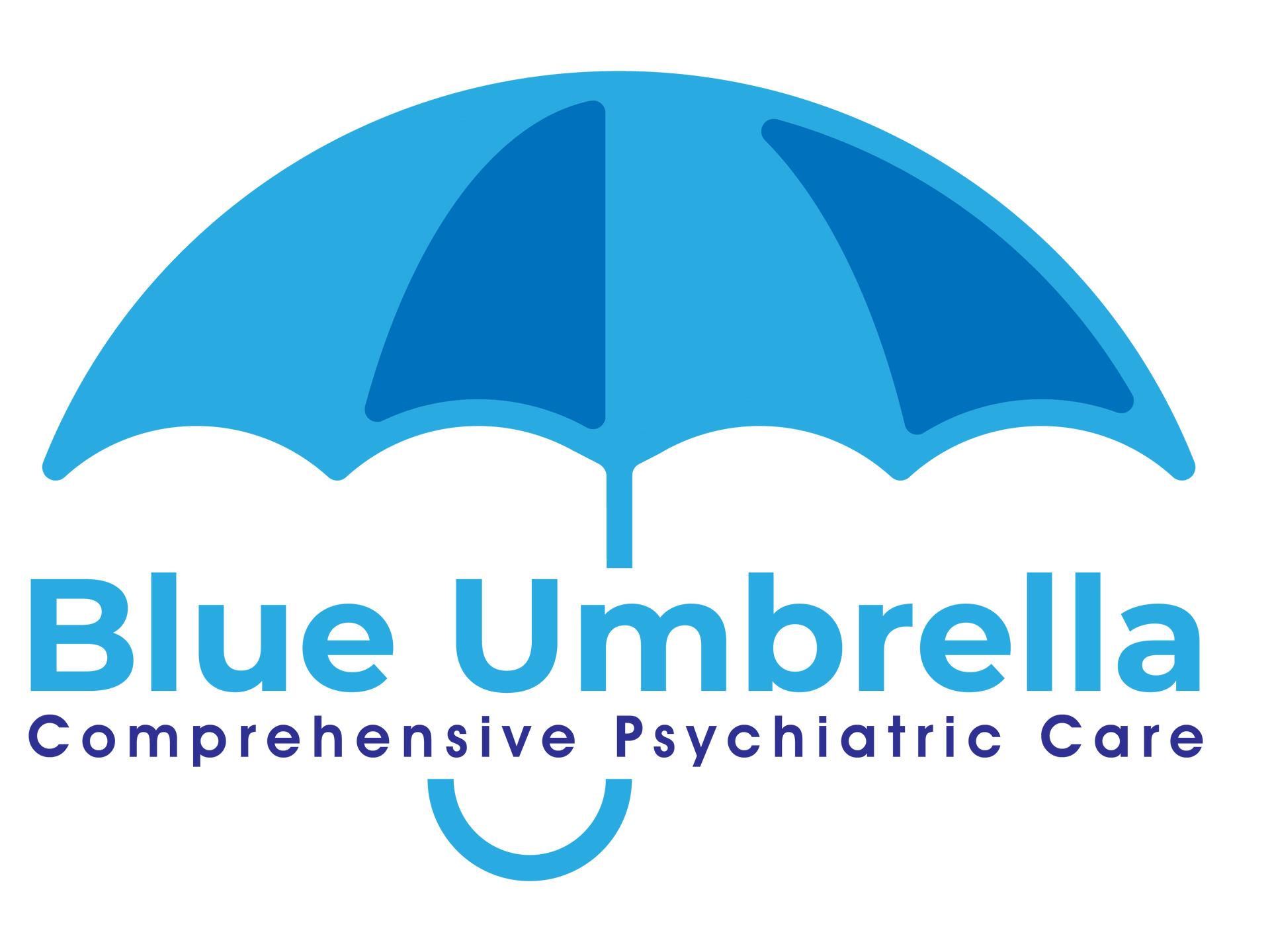Welcome to the Blue Umbrella Psychiatry blog. Today, we’re addressing a topic that is both profoundly important and deeply sensitive: suicide and mental health. Our aim is to provide support, understanding, and practical guidance for those who may be struggling, as well as their loved ones.
The Importance of Open Conversation
Why Talk About Suicide?
Discussing suicide can be challenging, but it’s crucial for several reasons:
- Awareness: Open conversations about suicide help raise awareness about mental health issues and the warning signs of suicidal thoughts.
- Support: Providing information and support can make a significant difference for individuals who are struggling and those who care about them.
- Prevention: Education and dialogue can lead to better prevention strategies and encourage people to seek help before a crisis escalates.
Understanding Suicide and Mental Health
The Link Between Mental Health and Suicide
Suicide is often linked to underlying mental health conditions, such as depression, anxiety, bipolar disorder, and others. These conditions can create overwhelming feelings of despair, hopelessness, and emotional pain. Understanding this connection is key to providing effective support and intervention.
Common Warning Signs:
Recognizing the warning signs of suicide can help in providing timely support. Some indicators may include:
- Persistent Sadness: A prolonged feeling of sadness or emptiness.
- Loss of Interest: Withdrawal from activities and relationships that were once important.
- Feelings of Hopelessness: Expressing feelings of hopelessness or worthlessness.
- Talk of Death: Talking about wanting to die or feeling like a burden.
- Behavioral Changes: Changes in behavior, such as increased substance use, reckless actions, or giving away belongings.
How We Can Help: Support and Resources
1. Professional Help:
If you or someone you know is struggling with suicidal thoughts, seeking professional help is essential. At Blue Umbrella Psychiatry, we offer compassionate support and treatment options, including:
- Therapy: Counseling and psychotherapy can provide a safe space to explore feelings and develop coping strategies.
- Medication: For some, medication can be an effective part of treatment for underlying mental health conditions.
- Crisis Intervention: We can help connect you with crisis intervention services and resources for immediate support.
2. Crisis Resources:
If you or someone you know is in immediate danger, please seek help immediately. Contact emergency services or reach out to crisis helplines, such as:
- National Suicide Prevention Lifeline: Call 988 or visit 988lifeline.org
- Crisis Text Line: Text HOME to 741741 to connect with a trained counselor.
3. Support for Loved Ones:
Supporting someone who is struggling can be challenging. Here are ways to offer help:
- Listen: Offer a non-judgmental ear and let them express their feelings.
- Encourage Professional Help: Gently encourage them to seek professional support and offer to assist in finding resources.
- Stay Connected: Regular check-ins and maintaining open communication can provide emotional support and reduce feelings of isolation.
How to Take Care of Yourself
Self-Care is Essential:
If you are supporting someone with mental health struggles or dealing with your own challenges, taking care of yourself is vital. Practice self-care by:
- Setting Boundaries: Establishing healthy boundaries to avoid burnout.
- Seeking Support: Connecting with support groups or therapy for yourself.
- Engaging in Self-Care: Prioritizing activities that promote your own well-being and mental health.
We’re Here to Support You
At Blue Umbrella Psychiatry, we are committed to providing compassionate care and support for mental health concerns, including those related to suicidal thoughts. Our team is here to listen, help, and guide you through your journey toward healing.
Need Support?
If you have any concerns about your mental health or that of a loved one, please reach out to us. We offer a safe and supportive environment to discuss your needs and explore treatment options.
Remember, you are not alone, and help is available.













